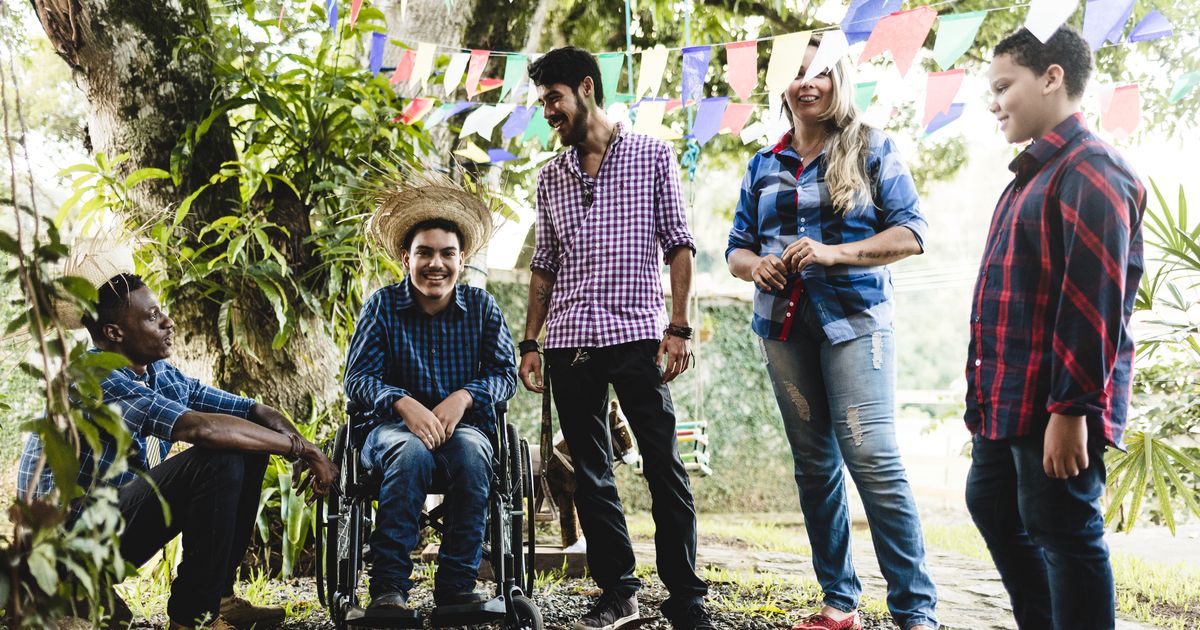Festival season is in full swing in the UK, with Glastonbury Festival taking place last month and festivals in Reading, Leeds and more on the way, while the iconic Hellas Tour returns to London in August, meaning music fans across the UK are enjoying their fill of live music.
However, accessibility remains a major concern for concertgoers with disabilities, preventing many from attending these monumental events.
Elaine Hughes, originally from London, is a diversity, equity and inclusion consultant in the luxury hospitality and events industry, and also has disability experience.
Hughes said many festivals do not provide adequate accessibility and disabled attendees must overcome numerous physical and logistical barriers.
These limitations can begin from the moment an individual visits a festival website, with missing information or unavailable features.
Hughes added: “I stopped going to concerts and events years ago because it was too much of a hassle to find venues, parking, seating and, most importantly, accommodations that were handicapped accessible.”
According to the UK government, one in five people in the UK is disabled, meaning around 20% of the population may be excluded from live events.
Of course, this is not news to many people with disabilities.
Journalist and content creator Holly Fleet, 30, known online as Stomababe, has ulcerative colitis and told X (formerly Twitter) that she was “treated with disdain” every time she returned to her place in the crowd at Taylor Swift’s London shows.
Despite explaining her condition, she refused to put down her backpack containing medical supplies, after which her parents “pushed her repeatedly,” the 27-year-old said.
Even booking tickets is difficult
I know from my own experience that reserving tickets for people with disabilities can be a risky proposition in some ways.
In May, I found myself sitting on the dirty floor of the venue because not only was it not possible to purchase a disabled ticket online, but when I contacted the ticket seller, I was directed to a venue that had disabled seating options.
I contacted the venue and they introduced me to the original distributor.
It’s a frustrating cycle that’s all too familiar to me.
Hughes said tickets for people with disabilities often go on sale later than regular tickets, creating more demand than organizers can keep up with. This disparity leaves many disabled event attendees frustrated and unable to attend.
She added: “Wheelchair inaccessible or uneven pathways make navigation even more difficult, there are seating issues and loose cables pose trip hazards.”
Additionally, festivals are notorious for getting muddy due to the unpredictable UK weather, but for people with disabilities, a lack of consideration for the weather can mean they can’t attend when the weather is not ideal. Just this year, alternative music festival Slam Dunk advised people with mobility problems not to attend because the grounds were not prepared for mobility aids.
But there is a solution: James Crame, chief technical officer at Start Safety, which specialises in the supply of health and safety equipment, says: “Ground protection mats can significantly improve safety at events by providing a high-traction, wear-resistant layer in pedestrian access areas.
“They prevent soil and grass erosion, reduce ruts, mud and exposed roots, and prevent people with mobility issues from tripping and wheelchairs from tipping over.”
Not all disabilities are visible
There’s a lot more to consider than you might think. Many people with disabilities need clean, accessible restrooms. For people with neurodevelopmental disorders, significant barriers can make attending a festival more difficult.
Mr Hughes said: “Some people with invisible disabilities will be asked to bring proof of PIP/DLA benefits before entering the venue.”
“Some venues are providing noise-cancelling headphones and creating quiet zones for supporters with neurodevelopmental disabilities, while others are creating priority lanes to help avoid long queues.
“Unfortunately, a lot of this information isn’t on the website, so we have to spend a lot of time calling and emailing people to get the information.”
Accessibility planning advocates wisely advise festival organizers to expect people with invisible and physical disabilities to attend their events.
What festivals can do now
Though progress has been made, festival organizers still have a long way to go.
Crame advises: “Make sure all products are securely attached to prevent swaying or tipping, install guide rails where possible and use contrasting colours to assist participants with visual impairments.”
“These measures aim to improve the overall accessibility and safety of the event, along with consideration for disabilities other than visual impairment.”
Support and additional information about accessible events can be found on the charity’s Attitude is Everything website.

